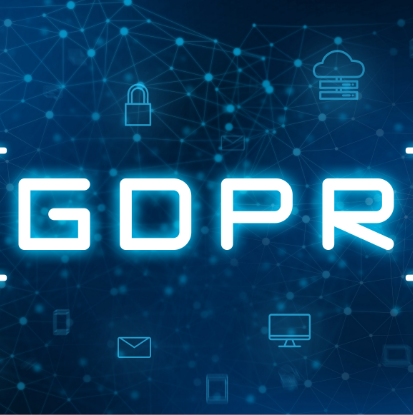Privacy Compliant Tracking
Navigating Privacy-Compliant Tracking in a Post-Cookie World
The end of third-party cookies is a major shift for marketers, requiring new user tracking methods. Driven by technological advances and demands for privacy and transparency, regulations like GDPR and CCPA enforce compliance. Learn about privacy-compliant tracking, innovative consent management, and the shift to first-party data and cookieless solutions to align with legal and consumer expectations in a post-cookie world.
The Foundation of Privacy-Compliant Tracking
Consent Management: Importance and Methods of Managing User Consent Effectively
Managing user consent isn’t just a legal obligation; it’s fundamental to customer trust and brand integrity. Effective consent management ensures that users are fully informed about what data is collected and how it’s used, providing them with clear choices.
Cookieless Tracking Techniques: The Shift towards First-Party Data
With the decline of third-party cookies, marketers are shifting towards first-party data collected directly from their own domains. This data is deemed more reliable, secure, and valuable for creating personalized marketing strategies.
Advantages of First-Party Data
First-party data is collected directly from your audience, offering numerous advantages such as accuracy, relevance, and increased compliance with privacy laws. It allows for deeper insights into customer behavior and can be leveraged for personalized marketing campaigns without the privacy risks associated with third-party data.
Strategies for Collecting and Utilizing First-Party Data
Effective strategies for collecting first-party data include offering value through content, tools, or services that encourage users to share their information. Ensuring that data collection forms are user-friendly and transparent about the benefits of data sharing can increase participation rates.
Data Minimization: Principles and Benefits of Collecting Only Necessary Data
Data minimization refers to the practice of collecting only the data that is directly necessary for a specified purpose. This principle is key to privacy compliance and helps reduce the risk of data breaches and misuse. By focusing on essential data, companies can not only comply with legal standards but also streamline data management and reduce storage costs.
Transparent Data Policies: Crafting and Communicating Clear Data Use Policies
Transparent data policies are essential for informing users about how their data is handled. These policies should clearly articulate the types of data collected, the purpose of collection, how it is used, and how it is protected. Effectively communicating these policies through easily accessible privacy notices or terms of service can help build trust and ensure regulatory compliance.
The Challenges and Solutions in Achieving Privacy Compliance
Technical Implementation Complexities
- Challenge: Implementing privacy-compliant tracking systems can be technically complex, especially for businesses transitioning from legacy systems. Integrating new technologies, securing data, and ensuring compliance demand significant technical expertise and resources.
- Solution: To overcome these challenges, businesses can invest in specialized technical talent or partner with experienced service providers. Implementing thorough training programs for staff can also ensure proper system maintenance and ongoing compliance.
Keeping Up with Evolving Regulations
- Challenge: The dynamic nature of privacy laws and standards presents a continuous challenge for businesses to remain compliant. Staying abreast of changes in regulations across various jurisdictions requires dedicated resources and vigilance.
- Solution: Businesses can establish robust compliance monitoring mechanisms and invest in legal counsel or compliance experts to interpret and navigate evolving regulations effectively. Additionally, participating in industry groups and forums can provide insights into emerging trends and best practices.
Balancing User Experience with Privacy Measures
- Challenge: Maintaining a seamless user experience while implementing stringent privacy measures presents a delicate balancing act for businesses. Overly intrusive security measures and consent requests can impede user engagement and satisfaction.
- Solution: Businesses can mitigate this challenge by adopting user-centric design principles and offering transparent communication about data practices. Implementing privacy-enhancing technologies and providing clear opt-out mechanisms can empower users while safeguarding their privacy rights.
Benefits of Implementing Privacy-Compliant Tracking
Building Trust and Brand Loyalty
Adopting privacy-compliant tracking practices plays a crucial role in building trust with customers. When businesses transparently communicate how they collect, use, and protect user data, they earn respect and credibility.


Ensuring Regulatory Compliance
Privacy-compliant tracking ensures that businesses adhere to various international and local privacy laws, such as the GDPR, CCPA, and others. Compliance not only avoids significant fines and legal fees associated with violations but also positions a company as responsible and trustworthy in the eyes of customers and business partners.
Enhancing Data Quality
By focusing on privacy-compliant tracking methods, businesses often collect data that is more accurate and relevant. This is primarily because these methods rely on first-party data and explicit user consent, ensuring that the data collected is directly from the user and with their permission.

Best Practices in Privacy-Compliant Digital Marketing
Update Privacy Policies Regularly
Regularly updating your privacy policies ensures that your practices remain transparent and compliant with evolving regulations. Clear, up-to-date policies build trust with your customers by showing that you respect their privacy and data security.
Collect Marketing Consent
Always obtain explicit consent before including individuals in your marketing efforts. This not only complies with legal requirements but also fosters a relationship based on trust and respect for your customers’ choices.
Verify and Clean Email Lists
Regularly verify and clean your email lists to maintain accuracy and relevance. Removing outdated or incorrect information helps prevent data breaches and ensures that your marketing efforts reach the right audience.
Control Customer Data Visibility
Limit access to customer data to only those who need it for their roles. Implementing strict data access controls helps protect sensitive information and reduces the risk of unauthorized use or breaches.
HIPPA Compliance
Are your marketing
Efforts HIPPA compliant?
Wizaly is committed to ensuring your marketing efforts are compliant with all data privacy laws. Learn how Wizaly can help you
Wizaly’s Approach to Privacy-Compliant Tracking
Compliant Data Collection Methodology: Overview and Benefits
Wizaly adopts a privacy-compliant data collection methodology that combines the strengths of both first-party and contextual data collection techniques. This approach ensures comprehensive data gathering while strictly adhering to privacy regulations.
Navigating the Post-Cookie World: Strategies and Technologies Wizaly Employs
Wizaly’s tag is allowed to fire in two different ways: anonymously and individually. If fired anonymously, a visit is registered but cannot be associated with a physical user (staying compliant with privacy laws). If fired individually, the visit is registered with all relevant information about the user.
For example, when a user reaches a landing page, the visit is registered by Wizaly. Then, depending on the user’s acceptance/rejection of cookies, the visit stays anonymous or becomes individualized. Wizaly now has 100% of the visits, some of them are anonymous, and some are individualized.
Compliance with Global Regulations: GDPR, HIPAA and CCPA Compliance through Wizaly’s Features
Every organization is different, and Wizaly understands this. That’s why they offer customizable solutions tailored to your specific compliance needs. Whether it’s data management, reporting, or other aspects of data privacy compliance, Wizaly’s platform can be adapted to meet your unique requirements.
By leveraging Wizaly’s comprehensive approach to privacy compliance, organizations can not only meet the legal requirements but also build trust with their customers. Wizaly’s platform offers a robust, customizable solution for managing the challenges of GDPR, making it an invaluable asset for any organization looking to ensure compliance.
The Future of Data Privacy for Marketers

Emphasis on First-Party Data
With the phasing out of third-party cookies, the importance of first-party data has surged. Advertisers are now focusing on collecting and leveraging their own data to maintain personalized marketing strategies. This shift ensures that businesses can create more authentic connections with their audiences while adhering to privacy regulations.
Implementation of Privacy-Enhancing Technologies
Privacy-enhancing technologies (PETs) like secure multi-party computation and federated learning are becoming essential. These technologies allow data analysis and machine learning to occur without exposing raw data, thus maintaining privacy. As AI continues to integrate into marketing, the use of PETs will be crucial in ensuring compliance and gaining consumer trust.


Regulatory Developments and Compliance
New regulations, such as the EU’s ePrivacy Regulation and various state laws in the U.S., are tightening controls on data usage and consent requirements. Businesses must stay ahead by adapting to these evolving regulations to ensure compliance. The enforcement of these regulations will shape the future landscape of digital marketing, demanding more transparency and user control over data.
Conclusion
Privacy-compliant tracking is essential in the evolving digital landscape, where stringent data privacy regulations and heightened consumer privacy expectations are the norm. Adopting these strategies ensures compliance and boosts customer trust and brand loyalty—key to long-term business growth. This approach requires a profound shift in data handling, embodying ethical practices and consumer respect, making businesses stand out in a transparency-valuing market.
We invite you to explore Wizaly’s innovative privacy-compliant tracking solutions. Our technologies simplify navigating data privacy complexities, ensuring your tracking methods are effective and responsible. Join us in shaping a privacy-focused future. Discover how Wizaly can enhance your data practices, fostering stronger customer relationships. Explore our solutions to gain a competitive edge in data privacy today.
FAQ
What is privacy-compliant tracking?
Why is consent management important in privacy-compliant tracking?
What are the benefits of using first-party data for tracking?
How does cookieless tracking work?
Can privacy-compliant tracking improve data quality?
How can businesses ensure compliance with evolving data protection regulations?
Resources
- HIPAA Compliance in Digital Marketing
- California Consumer Privacy Act
- General Data Protection Regulation
- Forbes: The Impact Of Privacy Regulations On Digital Marketing
Related – Coming Soon
- Understanding GDPR, CCPA, and Other Privacy Laws: A breakdown of major privacy laws and regulations affecting marketing data.
- Techniques for Privacy-Friendly Data Collection: Explores methods like consent management and anonymization.
- Impact of Privacy Laws on Marketing Strategies: Analyzes how privacy compliance affects digital marketing tactics.
- Tools for Ensuring Privacy Compliance: Reviews software solutions that help businesses stay compliant with data privacy laws.
- Privacy-Compliant Tracking Innovations: Discusses new technologies and approaches to tracking that respect user privacy.
More Information on Privacy Compliance in Digital Marketing
- Guide to GDPR Compliance: Everything You Need to Know to Comply with GDPR
- Best Practices to Protect Customer Data: The Ultimate Guide to Protect Consumer Data
- Understanding HIPAA Privacy in Compliant Marketing: Navigating the Digital Landscape
- Data Privacy and Digital Marketing: Strategies for Marketers in Compliance with Privacy Regulations
- HIPAA Compliant Digital Marketing Strategies: A Comprehensive Guide to Adhering to HIPAA Privacy Rules and Compliant Marketing
Glossary
Consent Management: The process of handling user consent for data collection and processing, ensuring transparency and control over personal data.
Cookieless Tracking: Tracking methods that do not rely on cookies, employing alternatives like server-side tracking and fingerprinting to respect user privacy.
First-Party Data: Data collected directly from users or customers with their consent, considered more reliable and privacy-compliant than third-party data.
Data Minimization: The principle of collecting only the data necessary for a specific purpose, thereby reducing the volume of personal information gathered.
Transparent Data Policies: Clear policies that inform users about the data being collected, its purpose, and sharing, ensuring clarity and trust.
Server-Side Tagging: A method of managing tags or tracking pixels on the server-side, providing more control over data and enhancing privacy.